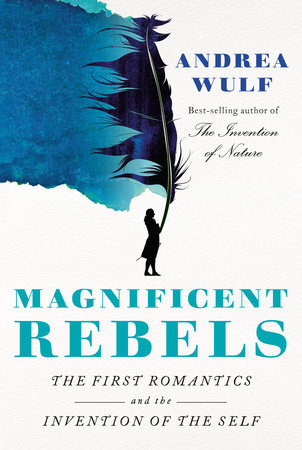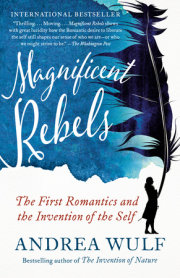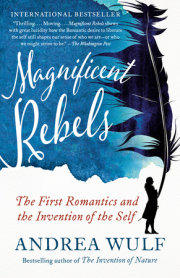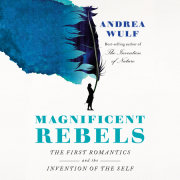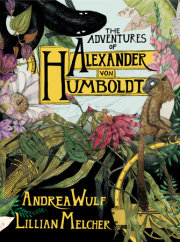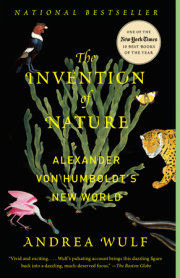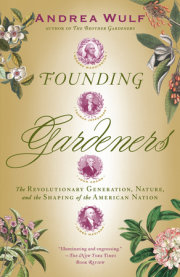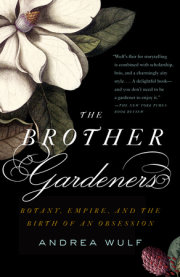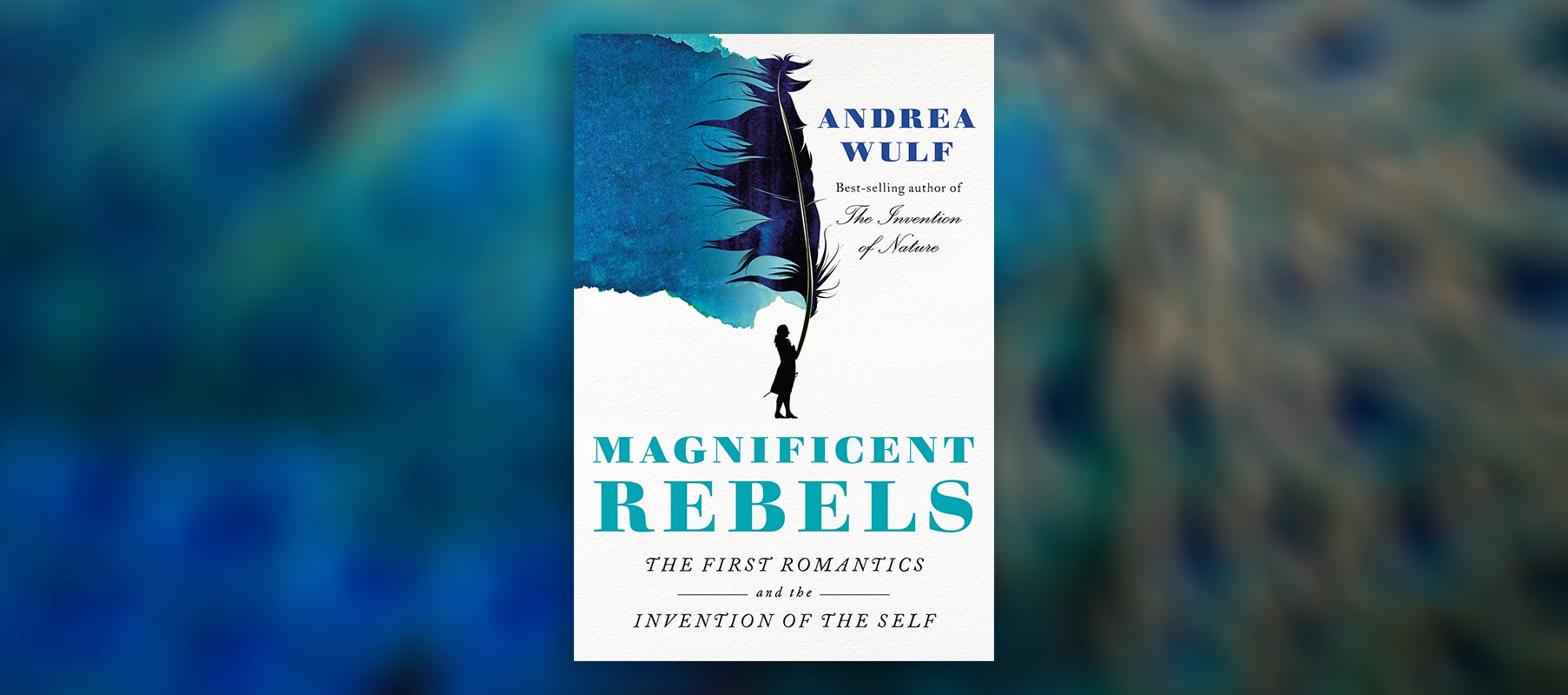PART I
Arrival
Now at last we’ve overcome all the obstacles in our path, and left them behind us too, on rails as smooth as the ones you’ve been on for so long. And alongside yours, too. I’m unspeakably happy . . . and this valley is already a dear friend.
Caroline Schlegel to Luise Gotter, 11 July 1796
1
‘A happy event’
Summer 1794: Goethe and Schillers
On 20 July 1794 Johann Wolfgang von Goethe heaved himself into the saddle and rode from his house in the centre of Weimar to Jena, where he planned to attend a botanical meeting of the recently founded Natural History Society. It was a hot summer that would soon turn into a glorious autumn – long sunbaked months during which pears, apples, sweet melons and apricots ripened four weeks early and the vineyards produced one of the century’s greatest vintages.
On the fifteen-mile ride from Weimar to Jena, Goethe passed farmers scything wheat in golden fields and great haystacks awaiting storage as winter fodder in the barns. After a couple of hours of riding through flat farmland, the countryside began to change. Little villages and hamlets snuggled into gentle dips, and then the forest closed in and the fields disappeared. The land became more hilly. Shellbearing limestone cliffs rose to the left, exposing the geological memory of the region when this part of Germany had been a landlocked sea some 240 million years ago. Just before he reached Jena, Goethe crossed the so called Snail, the steep hill named after the serpentine road that wound up to its top.
Then, finally, he saw Jena beneath him, nestled in a wide valley and held in the elbow of the Saale River with the jagged outline of the forested mountains behind. These were more hills than mountains, perhaps, but the views were spectacular – and the reason why Swiss students in Jena lovingly called the surrounding area ‘little Switzerland’.
Goethe was the Zeus of Germany’s literary circles. Born in Frankfurt in 1749 to a wealthy family, he had grown up amidst comfort and privilege. His maternal grandfather had been the mayor of Frankfurt and his paternal grandfather had made his wealth as a merchant and tailor. Goethe’s father didn’t have to work and had instead managed his fortunes, collected books and art, and educated his children. Though a lively and bright child, Goethe had not shown any excep-tional talents. He loved to draw, was proud of his immaculate handwriting and enjoyed the theatre. When the French had occupied Frankfurt in 1759 during the Seven Years War and their commander had been billeted at the Goethes’ house, young Goethe had made the best of it by learning French from the occupying forces.
He had studied law in Leipzig and worked as a lawyer, but also began to write. In the mid-1770s he had been thrust into the public eye with the publication of his novel
The Sorrows of Young Werther – the story of a forlorn lover who commits suicide. Goethe’s protagonist is irrational, emotional and free. ‘I withdraw into myself and find a world there,’ Werther declares. The novel captured the sentimentality of the time and became the book of a generation. A huge international bestseller, it was so popular that countless men, including Carl August, the ruler of the small Duchy of Saxe-Weimar, had dressed like Werther – wearing a yellow waistcoat and breeches, blue tailcoat with brass buttons, brown boots and a round grey felt hat. Chinese manufacturers even produced Werther porcelain for the European market.
It was said that Werther had caused a wave of suicides, and forty years after its publication the British poet Lord Byron joked with Goethe that his protagonist ‘has put more individuals out of this world than Napoleon himself ’. The Sorrows of Young Werther had been Goethe’s most vivid contribution to the so-called Sturm und Drang – the Storm and Stress movement – which had elevated feelings above the rationalism of the Enlightenment. In this period, which had celebrated emotion in all its extremes, from passionate love to dark melancholy, from suicidal longings to frenzied delight, Goethe had become a literary superstar.
The eighteen-year-old Duke Carl August had been so enraptured by the novel that he had invited Goethe to live and work in the duchy in 1775. Goethe was twenty-six when he moved to Weimar; and he knew how to make an entry, arriving dressed in his Werther uniform. During those early years the poet and the young duke had roistered through the streets and taverns of the town. They had played pranks on unsuspecting locals and flirted with peasant girls. The duke loved to gallop across the fields and to sleep in hay barns or camp in the forest. There had been drunken brawls, theatrical declarations of love, naked swimming and nightly tree climbing – but those wild years were long gone and Goethe had turned his back on his Sturm und Drang phase.
In time, both poet and ruler calmed down, and Goethe had become part of the duchy’s government. The small state had just over a hundred thousand inhabitants – tiny in comparison to the five million people of nearby Prussia, or other powerful states such as Saxony, Bavaria or Württemberg. With a mostly agrarian economy – grain, fruit, wine, vegetable gardens as well as sheep and cattle – the Duchy of Saxe-Weimar had little trade and manufacturing, yet it maintained a bloated court of two thousand courtiers, officials and soldiers, all of whom had to be paid. The town of Weimar itself had a provincial feel. Most of the seven hundred and fifty houses had only one storey and such small windows that they felt gloomy and cramped inside. The streets were dirty, and there were only two busi-nesses in the market square that sold goods which could be classed as luxury items – a perfumery and a textile shop. There wasn’t even a stagecoach station.
Goethe became Carl August’s confidant and his privy councillor – so trusted that it was rumoured that the duke didn’t decide anything without the poet’s advice. In time, Goethe took charge of the royal theatre and of rebuilding the burned down castle in Weimar, in addition to several other well-paid administrative positions, including the control of the duchy’s mines. He also worked closely with his colleague in the Weimar administration, minister Christian Gottlob Voigt. A diligent worker, Goethe was never idle – ‘I never smoked tobacco, never played chess, in short, I never did anything that would have wasted my time.’
In 1794, Goethe was forty-four and no longer the dashing Apollo of his youth. He had put on so much weight that his once beautiful eyes had disappeared into the flesh of his cheeks and one visitor compared him to ‘a woman in the last stages of pregnancy’. His nose was aquiline, and like so many contemporaries, his teeth were yellowed and crooked. He had a penchant for stripy and flowery long waist-coats, which he buttoned tightly over his round belly. Unlike the younger generation, who often wore fashionable loose fitting trousers, Goethe preferred breeches. He wore boots with turned-down tops and always his tricorne. He kept his hair coiffed and powdered, with two carefully pomaded curls over his ears and a long, stiff ponytail. Knowing that everybody was watching him, he always made sure to be properly dressed and groomed when he went out. Ennobled by the duke in 1782, he was now Johann Wolfgang von Goethe and lived in a large house in Weimar, where he often tried and failed to work amid a constant stream of strangers knocking on his door to gawp at the famous poet. He loathed these disruptions almost as much as he hated noise, in particular the rattling of his neighbour’s loom and the skittle alley in a nearby tavern.
Goethe might have turned his back on the Sturm und Drang era, but it seemed as if his creativity had done the same to him. For years he had failed to produce anything remarkable and his plays were no longer widely staged. He fussed over his writings for years. More than two decades earlier, he had begun to work on his drama Faust but only a few scenes had been published. He had rewritten and changed his tragedy Iphigenia in Tauris so many times – from prose to blank verse, back to prose, to its final version in classical iambic verse – that he called it his ‘problem child’. And though he was the director of the Weimar theatre, he preferred to stage popular plays by his contemporaries rather than his own.
Botany was now Goethe’s favourite subject, and the reason he often came to Jena. He was overseeing the construction of a new botanical garden and institute in Jena. Originally founded in 1548 as a medicinal garden, the university’s existing botanical garden had been used to train physicians, but Duke Carl August had asked Goethe to extend and move it to a new location, just north of the old town walls. Goethe enjoyed every aspect of the project because it united his deep love of nature and beauty with scientific rigour. He was looking forward to the meeting of the Natural History Society.
Copyright © 2022 by Andrea Wulf. All rights reserved. No part of this excerpt may be reproduced or reprinted without permission in writing from the publisher.

